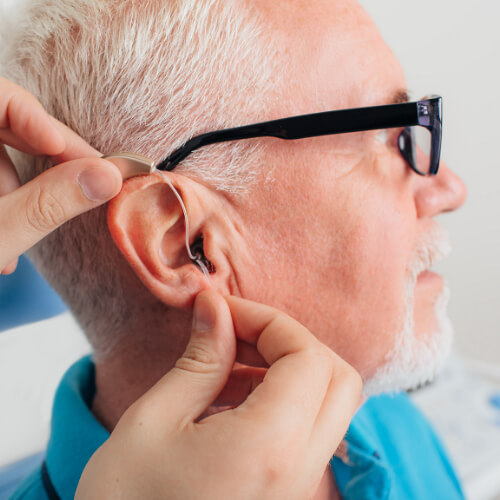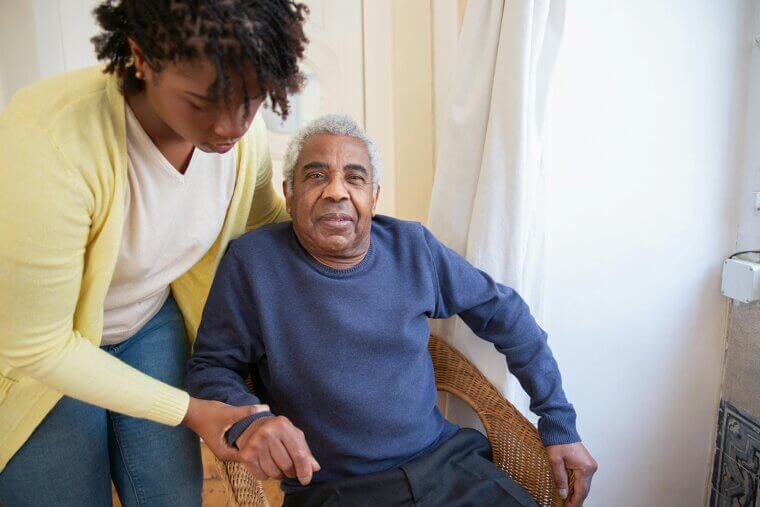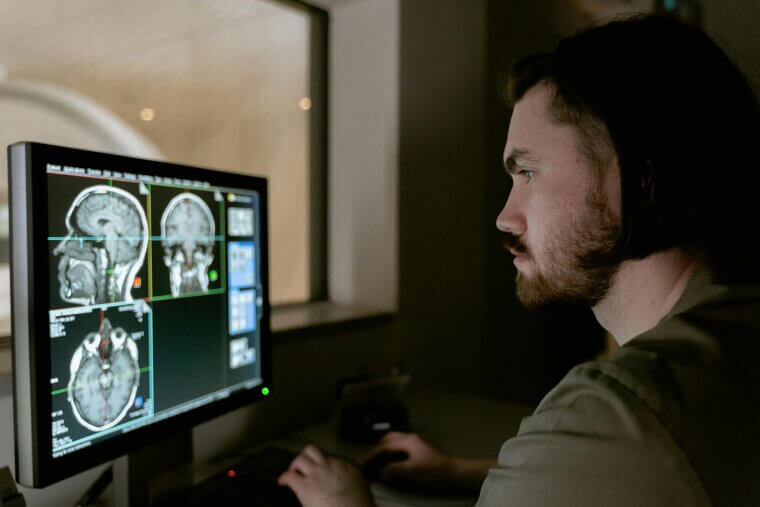“Memory Loss Is Just a Normal Part of Getting Old. ”
We often joke about having a "senior moment," but losing cognitive function isn't a guarantee of aging. While processing speed might slow down a bit, forgetting names of close family members or getting lost in familiar places isn't normal. If memory gaps disrupt your daily life, it’s time to chat with a doctor, not just shrug it off as another birthday passing by.
"Nothing Can Be Done to Prevent Dementia; It’s Inevitable. ”
Actually, up to 40% of dementia cases might be delayed or prevented by lifestyle changes. Your brain loves what your heart loves: exercise, a healthy diet, and staying socially active. While we can't control every risk factor, like genetics, taking care of your overall health is a powerful shield against cognitive decline. It’s never too late to start.
“Hearing Loss Is Unrelated to Dementia. ”
Your ears and brain are tightly connected, and untreated hearing loss is actually a significant risk factor for developing dementia later in life. When you struggle to hear, your brain works harder to decode sound, leaving less energy for other cognitive tasks. Additionally, trouble hearing often leads to social isolation, which is tough on brain health. Get those hearing aids checked!
Surprised already? The next few myths are even more common!
Surprised already? The next few myths are even more common!
“Dementia and Alzheimer’s Are the Same Thing. ”
Think of "dementia" as an umbrella term, much like "fruit." Alzheimer’s is just one type of fruit, specifically, the most common one, under that umbrella. But there are many others, including Vascular dementia, Lewy Body dementia, and Frontotemporal disorders. Each type has different causes and symptoms, so using the terms interchangeably misses the nuances of the specific diagnosis.
“A Diagnosis of Dementia Means a Person Will Immediately Lose All Independence. ”
This is a huge fear, but it’s rarely the reality. Many people live functionally for years in the early stages. They can often continue driving, working, and pursuing hobbies with just minor adjustments. The goal isn't to wrap them in cotton wool immediately; it’s to set up safety nets so they can live autonomously for as long as possible.
“Only Very Old People Get Dementia. ”
While age is certainly the biggest risk factor, it isn't the only one. Young Onset Dementia can strike people in their 40s, 50s, or even 30s. It’s rare, accounting for a small percentage of cases, but it happens. Assuming memory issues in younger adults are just stress can lead to missed diagnoses and delayed support for families who need it most.
These next facts may change everything you know about brain health…
These next facts may change everything you know about brain health…
“If Someone Can Remember Old Events, They Don’t Have Dementia. ”
It’s confusing when Dad remembers 1975 perfectly but forgets breakfast. Dementia often attacks the brain's "recording button" (short-term memory) first, while the "library" of older memories remains intact for much longer. Vividly recalling childhood stories doesn't rule out cognitive decline; it just means the disease is affecting a different part of the brain's storage system.
"Dementia Is Always Caused by Genetics. ”
Don’t panic if your parents had it; genes are only part of the puzzle. While a family history increases your risk, it’s not a sealed fate. Most cases of Alzheimer's are "sporadic," meaning they happen without a direct genetic cause. Environmental factors, lifestyle choices, and heart health play significant roles that often outweigh the influence of your DNA.
“Drugs Can Cure Alzheimer’s / Dementia. ”
We all wish this were true. But unfortunately, there is no magic pill that can cure dementia or reverse its damage currently. However, some medications can help manage symptoms or slow progression for a while, giving families more quality time. Science is advancing rapidly, but currently, treatments primarily focus on management and care, rather than a total cure.
Confusion isn’t always a sign of dementia, and the next myth shows why.
Confusion isn’t always a sign of dementia, and the next myth shows why.
“Poor Memory Always Means Dementia. ”
Did you know that stress, depression, thyroid issues, vitamin deficiencies, and even infections can mimic dementia symptoms? Forgetfulness isn't always a permanent brain disease. Sometimes, it’s a treatable medical condition. Before jumping to the worst-case scenario, it is essential to undergo a comprehensive medical workup to rule out these reversible causes of "brain fog."
"Dementia Equals Loss of All Emotions and Personality. ”
The essence of the person remains, even when facts fade. Someone with dementia might forget who you are, but they will still feel the emotional impact of your presence. They can experience a range of emotions, including joy, fear, love, and sadness. Assuming they are "gone" ignores their humanity; they are still there, though just in a different way.
“If Tests Like MRI Are Normal, the Person Doesn’t Have Dementia. ”
Brain scans are amazing, but they aren't perfect. In the early stages of Alzheimer’s or other dementias, the physical shrinkage of the brain might not be visible yet on an MRI. Doctors must consider the entire picture, which includes symptoms, history, and cognitive tests, because a "clean" scan doesn't automatically mean the brain is functioning perfectly.
Think people with dementia can’t understand you? The truth’s more nuanced.
Think people with dementia can’t understand you? The truth’s more nuanced.
“People With Dementia Don’t Understand What You Say. ”
Never talk about someone as if they aren't in the room. They often pick up on tone and body language, even if they can't process the words. Furthermore, they absolutely feel pain but might lose the ability to express it verbally. Instead of saying "ouch," they might become agitated or withdrawn. We need to look more closely to understand their needs.
“Dementia Patients Shouldn’t Be Told Their Diagnosis. ”
Withholding the truth robs people of their right to plan their own future. While the news is devastating, many people actually feel relief knowing there is a reason for their symptoms. Knowing the diagnosis allows them to make decisions about their care, finances, and bucket list items while they still have the cognitive capacity to do so.
“Dementia Always Progresses at the Same Speed. ”
If you’ve met one person with dementia, you’ve met one person with dementia. The journey is wildly unpredictable. Some people decline rapidly over a few years, while others live with the condition for two decades with slow changes. It depends on the specific type of dementia, the person’s overall health, and their support system. There is no single timeline.
“You Can Diagnose Dementia With One Online Test or App. ”
Dr. Google is not a neurologist. While online quizzes can be interesting screening tools, they cannot diagnose a complex neurological condition. Several factors, including anxiety, the testing environment, and computer literacy, can influence the accuracy of results. Don't let an app tell you your medical fate.
Before you get them on medication, there’s something far more effective to try.
Before you get them on medication, there’s something far more effective to try.
“Antipsychotics Are the Best Way to Calm Difficult Dementia Behaviors. ”
Medication should act as a last resort, not a first response. Often, "acting out" is actually an attempt to communicate unmet needs, such as hunger, pain, or boredom. Using heavy sedatives can increase the risk of falls and strokes. Instead, try music, validation therapy, and changing the environment, which are usually safer and more effective strategies for behavioral changes.
“If Someone Fails a Memory Test, They’re Incompetent for Decision-Making. ”
Competence isn't black and white. Someone might struggle to balance a checkbook or manage a complex stock portfolio but still be perfectly capable of deciding what they want for dinner or which friends they want to visit. We should support their decision-making in areas where they are still capable, rather than stripping away all agency immediately.
“Dementia Prevention Advice Is Only for Older Adults. ”
Brain changes can begin 20 years before symptoms appear. That means the habits you build in your 40s and 50s matter right now. Managing blood pressure, keeping cholesterol levels in check, and staying active during midlife builds a "cognitive reserve." Don't wait until retirement to start thinking about your brain; start protecting it today.
“People With Dementia Can No Longer Enjoy Intimacy or Meaningful Relationships. ”
We often forget that the heart doesn’t get dementia. The human need for touch, closeness, and warmth remains incredibly strong. While the relationship dynamic will shift, deep emotional bonds and physical intimacy often continue to bring comfort. It’s not about remembering the history of the relationship, but feeling the safety and love of the present moment.




















